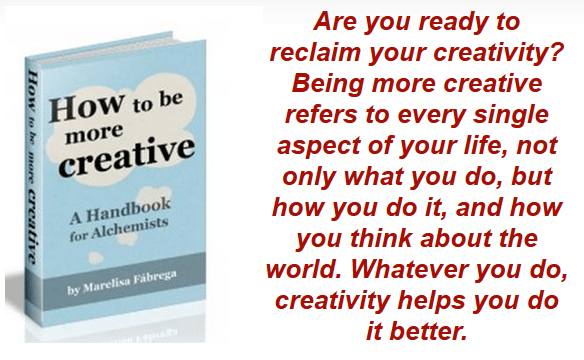
“Our doubts are traitors . .. “ – William Shakespeare
Everyone feels self-doubt at least every once in a while. However, high achievers overcome their self-doubt, while low achievers wallow in it and allow their self-doubt to prevent them from achieving their goals. Self-doubt sounds like the following:
- “I’m not sure I can do this.”
- “What if I fail?”
- “What if I just don’t have what it takes?”
Fortunately, there are ways of conquering those doubts, so that they don’t hold you back. Below you’ll find eight ways to overcome self-doubt.
1. Beware of Naysayers.
 Self-doubt comes from one of two sources, from other people—also known as naysayers–or from your own negative inner chatter. Let’s start with the naysayers. They’re the people who are constantly telling you things like the following:
Self-doubt comes from one of two sources, from other people—also known as naysayers–or from your own negative inner chatter. Let’s start with the naysayers. They’re the people who are constantly telling you things like the following:
- “That’s too hard; there’s no way you’ll succeed. Don’t even try.”
- “That doesn’t sound safe.”
- “You’re too old to try that. Remember, you can’t teach an old dog new tricks.”
- “What if you fail? You’ll never be able to live it down”
The motivation behind these comments could be any of the following:
- They may be trying to keep you from getting hurt, albeit in a misguided way. If this is the case, explain to them how you’ve prepared yourself for the challenge that lies ahead, and reassure them that you’ll be fine.
- They’re reflecting their own doubts about themselves onto you. Don’t adopt other people’s doubts as your own. Instead, tell those people: “I’m sorry if that’s how you see yourself, but that’s not how I see myself.”
- They may be jealous that you’re trying something new, while they’re too scared to change. Move away from these people as fast as you can.
Deal with naysayers in the ways explained above so that they stop feeding your self-doubt.
2. Challenge the Negative Chatter in Your Head.
The second source of self-doubt is your own negative inner chatter. The best way to quiet the negative chatter in your head is to present evidence against anything it’s saying. Here are some examples of possible responses:
- “What are you saying? That I’m too old to run a marathon? There’s a British man named Fauja Singh who ran a marathon at the age of 100! I still have time.”
- “Yes, I realize that I didn’t go to business school. That’s why I’m taking business courses online.”
- “I understand that it’s going to be hard. But this is important to me, and I’m willing to do the necessary work.”
Just continue in this way, and sooner or later you’ll hear your inner chatter say, “You know what? Do whatever you want.”
3. Shrink the Challenge.
It’s easy to doubt yourself when the challenge that you’re facing is very large. Therefore, you can decrease your self-doubt by making the challenge smaller. Here are three examples:
- If you’re thinking of quitting your job to work as a freelance writer, stay at your job—for now—and do freelance work on the side.
- If you want to be a writer, don’t start by trying to write a novel. Instead, start by writing short stories.
- If you want to start making video courses, don’t start by getting expensive, professional-quality equipment. Instead, put together a simple home studio for yourself that includes just the basics.
Get over any self-doubt you may be feeling by shrinking the challenge. Later, when you’ve overcome your self-doubt, you can make the challenge big again.
4. Ask – What’s the Worst that Could Happen?
Another way to overcome your self-doubt is to come up with the worst case scenario. If you fail, what’s the worst thing that could happen? Then, ask yourself the following:
- Is it really that bad?
- What steps can I take to lessen the probability that the worst case scenario will come to pass?
- What can I do to be prepared in case the worst does happen? What sort of “insurance” could I set up in order to protect myself?
Conquer your self-doubt by realizing that the worst case scenario wouldn’t be something catastrophic. Instead, even if it were to take place, you would be prepared to deal with it.
5. Ask – What’s the Best that Could Happen?
If you go after your dreams, you might fail. But you might also succeed. What would that look like? Paint a vivid picture of what your life would be like if you achieved your goal. Whenever you feel self-doubt rearing its ugly head, pull up that image of yourself succeeding and achieving your goal.
Overcome self-doubt by keeping your eye on the prize.
6. Take the Focus Off of Yourself.
Sometimes you feel self-doubt because you’re too focused on yourself. If that’s the case, what you need to do is shift your focus to others. Look at the following:
- Instead of asking, “What if I bomb the presentation?”, ask yourself, “What do the people who are going to be in the audience need to know about this topic, and how I make the presentation fun and informative for them?”
- Instead of asking yourself, “What if nobody buys my product?”, ask yourself, “What problem am I trying to solve for others with this product?” and “How can I make sure that my product solves that problem?”
- Instead of asking yourself: “What if I ask for the promotion and I don’t get it?”, ask yourself, “What does the company need from someone in the position that I want, and how can I best meet those requirements?”
See what the trick is here? If you’re not thinking about yourself, how can you doubt yourself? Put an end to self-doubt by focusing on others.
7. Share Your Goal with People You Trust.
If you share your goal with the wrong people—toxic people, people who don’t like change, or people who are just sad and miserable—they’ll probably add to any self-doubt that you may be feeling. However, sharing your goal with the right people will help you to conquer your self-doubt.
These are the kind of people you should share your goals with:
- Someone who has already achieved what you’re trying to do and can point you in the right direction.
- Someone who will remind you of for your past successes and encourage you to move forward.
- Someone who can point out any flaws in your plan, and give you advice on how to fix those flaws.
There are some people who can act as a bridge between where you are now and where you want to be. Those are the people you want to be sharing your goals and dreams with. They will help you overcome your self-doubt.
8. Walk Through Your Fear.
Self-doubt is fear: fear of failure, fear of being ridiculed, fear of disappointing others, and so on. In order to overcome self-doubt, you have to walk through your fear.
I’m going to give you an example of walking through fear. My bedroom door has an opening over it which is partially covered by three wooden slots at an angle. You can’t look out into the hall from the bedroom, but you can clearly see whether the hallway light is on or off through the opening.
A few nights ago—it was late at night–I was in my bedroom, about to fall asleep, when I turned over and opened my eyes for a moment. At that instant, I saw the light out in the hall flicker on and off twice through the opening over the door. I froze. What had just happened?
I turn all of the lights off before going to bed, and I live alone. So why was the hallway light turning on and off? I thought to myself: “Please let me have imagined that.” I continued staring at the opening over the door, and then it happened again: the light out in the hall flickered on and off a few times.
You can imagine how scared I was. However, I forced myself to get out of bed and pull on the string that turns on the ceiling fan light. I then stood very still, and it happened again: the light out in the hall flickered on and off three or four times.
In my mind I could see a dark figure standing out in the hall with its hand on the light switch, moving the switch up and down (the imagination goes into overdrive when it’s very late at night).
I told myself that I needed to go out there and see what was going on. I looked around for a weapon and noticed I had left my broom leaning against one of the bedroom walls. I grabbed the broom and readied myself. Then, I resolutely walked to the door, swung it open, and raised the broom in order to smack whoever—or whatever–was out in the hall with the broom.
The hallway was empty. Then I noticed that what was flickering on and off wasn’t the hallway light, but the kitchen light.
That’s when I remembered that the kitchen light wasn’t working. It would take some time to turn on, then it would turn off, and a while later it would start flickering. When I went to bed I hadn’t noticed that the kitchen’s light switch was in the “on” position, because when I walked past the kitchen the light was off.
I breathed a sigh of relief and went back to bed. This story has two morals:
- When you’re afraid you have to force yourself to walk through the fear.
- Once you do walk through the fear, it’s very likely that whatever fearful outcome you were imagining will not materialize.
In order to overcome your self-doubt, walk through your fear.
Conclusion
I started off this post with the beginning of a quote on doubt by Shakespeare. Here’s the quote in its entirety:
“Our doubts are traitors, and make us lose the good we oft might win, by fearing to attempt.”
Live your best life by overcoming self-doubt and going after the things you really want. Start by applying the eight strategies above.





Related Posts:




 Marelisa Fabrega is a lawyer and entrepreneur. She holds a Bachelor of Science in Business Administration from Georgetown University in Washington, D.C., as well as a Juris Doctor from the Georgetown University Law Center. You can learn more about her
Marelisa Fabrega is a lawyer and entrepreneur. She holds a Bachelor of Science in Business Administration from Georgetown University in Washington, D.C., as well as a Juris Doctor from the Georgetown University Law Center. You can learn more about her 





